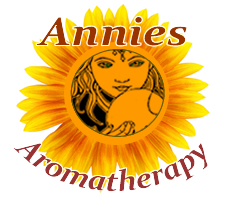Lemongrass Cymopogon citratus, C.flexuosus

- Common Names
- Lemongrass , lemongrass
- Botanical Name
- Cymopogon citratus, C.flexuosus
- Family
- POACEAE
Medicinal Uses & Benefits of Lemongrass
![]() How to Use|
Side Effects |
Plant & Garden|
Aromatherapy Oil |
How to Use|
Side Effects |
Plant & Garden|
Aromatherapy Oil |
- Medicinal Uses: * Aromatherapy
* Cellulite
* Culinary/Kitchen
* Herbal Teas
* Insect Repellent
- Properties: * Analgesic * Antibacterial * Aromatic * Astringent * Balance * Calm * Depurative * Digestive * Emmenagogue * Galactagogue * Insect repellents * Mood * Nervine * Skin tonic * Warm
- Parts Used: stalk, essential oil
- Constituents: citral, citronellol, dipentene, geraniol, limonene, linalool, nyrcene
How to Use: Lemongrass
Lemongrass is a well known medicinal herb in the east, as well as being widely used in Thai, Indonesian,Vietnamese, and Caribbean cooking. In Ayurvedic medicine a preparation of lemon grass with pepper has been used for relief of menstrual troubles and nausea. Lemon grass is a mild diuretic and a digestive stimulant that promotes digestion of fats.
Preparation Methods & Dosage :Lemon grass herb is commonly used in teas, soups, and curries. It is also suitable for poultry, fish, and seafood. The essential oil can be used in many skin care applications. Add a few drops of lemongrass essential oil to your pets shampoo, and on cloth flea collars. It adds a fresh, clean scent and discourages fleas. Use it in aroma lamps, sprays, and body and face oils to deter insects. Unlike harsh chemical insect sprays, the scent of lemongrass is very pleasant and makes a good room spray.
Lemongrass Remedies
Lemongrass : Essential Oil Profile
The Lemongrass essential oil has a musky, lemon scent that is refreshing and relaxing at the same time. Lemongrass oil contains citronella, a good mosquito and insect repellent. Add a few drops of lemongrass essential oil to your pets shampoo, and on cloth flea collars. It adds a fresh, clean scent and discourages fleas. Use it in aroma lamps, sprays, and body and face oils to deter insects. Unlike harsh chemical insect sprays, the scent of lemongrass is very pleasant and makes a good room spray. Add 10 drops of lemongrass to a bowl of hot water and use as a steam inhalation to clear congestion and tone face. Lemongrass is astringent oil that strengthens connective tissue. Use it in skin formulations to treat acne, cellulite, and other skin problems.
Ayurvedic Medicine
 In Ayurvedic medicine a preparation of lemon grass with pepper has been used for relief of menstrual troubles and nausea.
In Ayurvedic medicine a preparation of lemon grass with pepper has been used for relief of menstrual troubles and nausea.
Lemongrass Side Effects: Essential oil for external use only.
Plant Description

Lemongrass has a lemony flavor and can be dried and powdered, or used fresh. The stalk itself is too hard to be eaten, except for the soft inner part. However, it can be finely sliced and added to recipes. It may also be bruised and added whole as this releases the aromatic oils from the juice sacs in the stalk.
How to Grow Lemongrass
Lemon grass is a tropical perennial grown as an annual in North America and brought in for the winter the northern climates Cymbopogon citratus, is the species most grown for culinary use. Purchasing a starter plant, or using cuttings is easier than starting from seed. Bare-rooted plants from the nursery make good container plants or can planted directly in the ground.
Related Species
C.martini,
Palmarosa
also called Rosha Grass and Indian Geranium
C. nardus and C. winterianus Citronella Grass is similar to lemongrass and best known as a mosquito repellent in insect sprays and candles.











